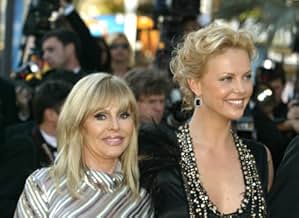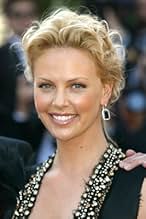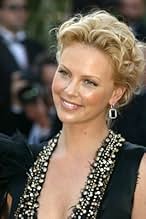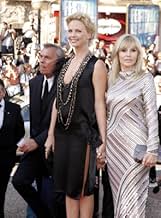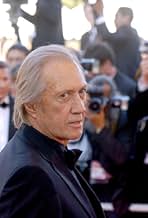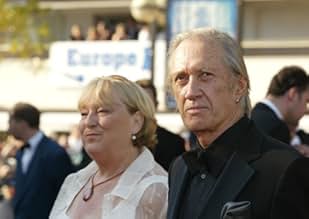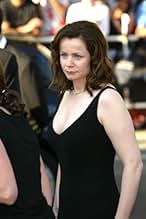IMDb RATING
6.9/10
16K
YOUR RATING
The feature adaptation of Roger Lewis' book about the actor best remembered as Inspector Clouseau in the Pink Panther movies.The feature adaptation of Roger Lewis' book about the actor best remembered as Inspector Clouseau in the Pink Panther movies.The feature adaptation of Roger Lewis' book about the actor best remembered as Inspector Clouseau in the Pink Panther movies.
- Director
- Writers
- Stars
- Won 9 Primetime Emmys
- 31 wins & 35 nominations total
Edward Tudor-Pole
- Spike Milligan
- (as Edward Tudor Pole)
- Director
- Writers
- All cast & crew
- Production, box office & more at IMDbPro
Featured reviews
I never thought I'd find myself feeling sorry for Britt Ekland: this film of Peter Sellers' life and career achieved that. One must assume that many of the details are based in truth - his behaviour to his children in particular was awful.
There is no doubt that Sellers was an amazing talent, and troubled as so many are (Tony Hancock, for instance) - the toll that took on those closest to him must have been great.
But to the film: it's worth seeing for the extraordinary performance from Geoffrey Rush, uncannily portraying Sellers. There is fine support, in particular from John Lithgow as Blake Edwards, Miriam Margoyles as Sellers' mother, and Charlize Theron's Ekland.
There is no doubt that Sellers was an amazing talent, and troubled as so many are (Tony Hancock, for instance) - the toll that took on those closest to him must have been great.
But to the film: it's worth seeing for the extraordinary performance from Geoffrey Rush, uncannily portraying Sellers. There is fine support, in particular from John Lithgow as Blake Edwards, Miriam Margoyles as Sellers' mother, and Charlize Theron's Ekland.
It might be impossible to capture every aspect of a man's life in a two-hour film (A & E Biography frequently fails at this in the one-hour format with the bigger stars) while giving everything its proper weight. Peter Sellers' life is of such extraordinary dimensions that "The Life and Death of Peter Sellers" even fails at being a scrapbook. This is not necessarily the film's fault; the movie is mostly well-cast (only John Lithgow as Blake Edwards didn't seem quite right) and beautiful to look at, from the opening credits on.
The movie serves mostly as a sampler of Sellers' oddball behavior. Incidents are selected from his life (or slightly fabricated) to stand for the whole; one slap across Britt Ekland's face is meant to represent a lifetime of spousal abuse, but those unfamiliar with Sellers personal life will assume that he was merely temperamental off-camera. In fact, it doesn't even come close to the truth: Anne Sellers reported that Peter once fought her for 14 hours straight (she took a nap in between) and Britt says Peter pointed a loaded gun at her in Rome, only capitulating after she told him 'if you shoot me, you'll ruin your own career'. His mistreatment of his family is grossly underweighted compared to such trivial items as Sellers not quite getting the Texas accent required for the bomber role in Dr. Strangelove, then faking a broken leg to Kubrick so he wouldn't be able to climb the ladder to the elevated cockpit on the movie set and avoid having to admit his failure with the voice. Other things are not clearly explained; for instance, that the "clairvoyant" Maurice Woodruff was in the employ of the movie studios to get Sellers to do the pictures they wanted him to do, or the fantasy sequence after his seven consecutive heart attacks in LA, which relates to Sellers insisting that he had an out-of-body experience during he time his heart stopped. The asides to the camera by the Kubrick and Bill Sellers characters, and Sellers (in funny voices) indicate the director straining for depth; perhaps a documentary on Sellers' life would have been better.
On the plus side, Geoffrey Rush is nothing short of superb as Sellers. Everything about Sellers seems exactly right, including the voice, which is no small feat, since I don't think Sellers is all that doable. The voice certainly wouldn't be recognized as Sellers if done out of context, say, as a stage impersonation, yet it works, even though I can't really recall what Sellers' actual voice did sound like. (It was this lack of personality that made him such a great instrument for creating characters) Charlize Theron is also a dead ringer for Britt, though she's not given much to do.
This movie is mostly for Peter Sellers enthusiasts, like myself, who can pick out the obscure trivia (like the Texas accent sequence), explain it to other people and feel superior. The movie isn't bad, really; its extremely well-acted and well-crafted, but it fails miserably at explaining the man. Why was he the way he was? How does one reconcile his genius with his brutality and selfishness. Sellers is of such depth and magnitude that a two-hour movie just doesn't cut it. For a true picture of the man, I would recommend the Roger Lewis book on which the movie is "based", Ed Sikov's more sympathetic biography on Sellers, and Michael Sellers' memoir "P.S. I Love You". Sellers once described himself as being an "empty vessel", a body through which one of his great characters came to life. I feel the same way about this movie.
The movie serves mostly as a sampler of Sellers' oddball behavior. Incidents are selected from his life (or slightly fabricated) to stand for the whole; one slap across Britt Ekland's face is meant to represent a lifetime of spousal abuse, but those unfamiliar with Sellers personal life will assume that he was merely temperamental off-camera. In fact, it doesn't even come close to the truth: Anne Sellers reported that Peter once fought her for 14 hours straight (she took a nap in between) and Britt says Peter pointed a loaded gun at her in Rome, only capitulating after she told him 'if you shoot me, you'll ruin your own career'. His mistreatment of his family is grossly underweighted compared to such trivial items as Sellers not quite getting the Texas accent required for the bomber role in Dr. Strangelove, then faking a broken leg to Kubrick so he wouldn't be able to climb the ladder to the elevated cockpit on the movie set and avoid having to admit his failure with the voice. Other things are not clearly explained; for instance, that the "clairvoyant" Maurice Woodruff was in the employ of the movie studios to get Sellers to do the pictures they wanted him to do, or the fantasy sequence after his seven consecutive heart attacks in LA, which relates to Sellers insisting that he had an out-of-body experience during he time his heart stopped. The asides to the camera by the Kubrick and Bill Sellers characters, and Sellers (in funny voices) indicate the director straining for depth; perhaps a documentary on Sellers' life would have been better.
On the plus side, Geoffrey Rush is nothing short of superb as Sellers. Everything about Sellers seems exactly right, including the voice, which is no small feat, since I don't think Sellers is all that doable. The voice certainly wouldn't be recognized as Sellers if done out of context, say, as a stage impersonation, yet it works, even though I can't really recall what Sellers' actual voice did sound like. (It was this lack of personality that made him such a great instrument for creating characters) Charlize Theron is also a dead ringer for Britt, though she's not given much to do.
This movie is mostly for Peter Sellers enthusiasts, like myself, who can pick out the obscure trivia (like the Texas accent sequence), explain it to other people and feel superior. The movie isn't bad, really; its extremely well-acted and well-crafted, but it fails miserably at explaining the man. Why was he the way he was? How does one reconcile his genius with his brutality and selfishness. Sellers is of such depth and magnitude that a two-hour movie just doesn't cut it. For a true picture of the man, I would recommend the Roger Lewis book on which the movie is "based", Ed Sikov's more sympathetic biography on Sellers, and Michael Sellers' memoir "P.S. I Love You". Sellers once described himself as being an "empty vessel", a body through which one of his great characters came to life. I feel the same way about this movie.
The story begins with the Goons and ends just after his role in the movie, Being There, thirty years later. A lot of the film features recreations of famous moments in Seller's acting life, such as appearing on "The Goons" or in "The Pink Panther". There are some particularly hilarious insights into his development of the "Inspector Clouseau" character, including an explanation of why he ended up hating the character so much.
As such, it really only touches the surface of his life story, but it does give you an intense understanding of the character. A character which, in the style of Greek tragedy, had a major flaw. For me, the flaw was Seller's total lack of confidence, perhaps due to his appearance, which he appears constantly to have overcompensated for.
Curiously enough, since Sellers is shown portraying great emotions, I was never actually moved myself, except perhaps for the occasion when he is violent towards Britt Ekland and in a particularly galling moment with his children.
The movie reaches its crescendo with Sellers' performance in "Being There" in which it's suggested the reason why Sellers so wanted to play the man without a personality was because he, himself, had no personality.
A few people at my workplace commented they thought the movie was far too stylized. Although I can see their point, and I agree I was never really touched by the movie, I thought Geoffrey Rush's performance more than made up for this. Rush plays not only Sellers, but several other characters in a Sellers-like "Dr Strangelove" kind of way, and achieves all of it with gusto. I also really enjoyed the performance of Miriam Margoyles as Sellers' mother, Peg, with whom he seems to have enjoyed an intense, almost Oedipal relationship.
I thought Geoffrey Rush's performance was fantastic and makes the movie totally worth watching.
As such, it really only touches the surface of his life story, but it does give you an intense understanding of the character. A character which, in the style of Greek tragedy, had a major flaw. For me, the flaw was Seller's total lack of confidence, perhaps due to his appearance, which he appears constantly to have overcompensated for.
Curiously enough, since Sellers is shown portraying great emotions, I was never actually moved myself, except perhaps for the occasion when he is violent towards Britt Ekland and in a particularly galling moment with his children.
The movie reaches its crescendo with Sellers' performance in "Being There" in which it's suggested the reason why Sellers so wanted to play the man without a personality was because he, himself, had no personality.
A few people at my workplace commented they thought the movie was far too stylized. Although I can see their point, and I agree I was never really touched by the movie, I thought Geoffrey Rush's performance more than made up for this. Rush plays not only Sellers, but several other characters in a Sellers-like "Dr Strangelove" kind of way, and achieves all of it with gusto. I also really enjoyed the performance of Miriam Margoyles as Sellers' mother, Peg, with whom he seems to have enjoyed an intense, almost Oedipal relationship.
I thought Geoffrey Rush's performance was fantastic and makes the movie totally worth watching.
For anyone interested in Peter Sellers life and work, this film is certainly worth watching, if for nothing more than the incredible re-creations of scenes from Sellers' films. Geoffrey Rush is transformed into a nearly dead-ringer for Sellers, through the magic of make up and prosthetics. But as talented as he may be, no one can recreate the subtleties of the master, especially the use of his eyes
Sellers' eyes were by far the funniest aspect of his physicality: narrowing, widening, always moving, punctuating his actions and illuminating the emotions within, even as part of the most farcical of performances.
Such a rich and varied life would lend itself to a miniseries but of course it would be a copout to suggest that at least a glimmer into the life of a man couldn't be done successfully within two hours. What this movie drove home for me was how terribly short the human lifespan really is, and how little time we have to truly discover ourselves and come to terms with our own frailties. I felt that the basis of Sellers unhappiness, which manifested itself in inexcusable cruelty to his family, friends and co-workers, was a direct result of his childhood, which was never really addressed in this film. It was, in his own words to Michael Parkinson, not a very happy time in his life. Growing up in the theater circuit, being in the company of boozy and abusive 'theatricals', and being raised by a domineering mother and what I gather was a rather passive and emotionally unavailable father set the stage for a man who obviously felt deprived of the things that give us self-esteem and confidence. No one in his adult life could give him the things he should've received from his parents as a child, and he took out that frustration on those closest to him.
Also interesting were the glimpses of his fellow Goons (Spike Milligan and Harry Secombe) at various chapters in his life-in the church at his mother's funeral, in the crowd at the premiere of 'The Pink Panther'. They represented what he considered the happiest time of his life and they were a constant presence, flitting in an out of his life at key moments in the film, like the ghosts of Christmas Past.
Interesting also in how one decision, in this case his delusional infatuation with Sophia Loren, set in motion a series of dovetailing mistakes in his life, which took him further and further away from a relatively healthy existence. He had twenty years more to live and it turned out to be not enough time to turn things around.
Such a rich and varied life would lend itself to a miniseries but of course it would be a copout to suggest that at least a glimmer into the life of a man couldn't be done successfully within two hours. What this movie drove home for me was how terribly short the human lifespan really is, and how little time we have to truly discover ourselves and come to terms with our own frailties. I felt that the basis of Sellers unhappiness, which manifested itself in inexcusable cruelty to his family, friends and co-workers, was a direct result of his childhood, which was never really addressed in this film. It was, in his own words to Michael Parkinson, not a very happy time in his life. Growing up in the theater circuit, being in the company of boozy and abusive 'theatricals', and being raised by a domineering mother and what I gather was a rather passive and emotionally unavailable father set the stage for a man who obviously felt deprived of the things that give us self-esteem and confidence. No one in his adult life could give him the things he should've received from his parents as a child, and he took out that frustration on those closest to him.
Also interesting were the glimpses of his fellow Goons (Spike Milligan and Harry Secombe) at various chapters in his life-in the church at his mother's funeral, in the crowd at the premiere of 'The Pink Panther'. They represented what he considered the happiest time of his life and they were a constant presence, flitting in an out of his life at key moments in the film, like the ghosts of Christmas Past.
Interesting also in how one decision, in this case his delusional infatuation with Sophia Loren, set in motion a series of dovetailing mistakes in his life, which took him further and further away from a relatively healthy existence. He had twenty years more to live and it turned out to be not enough time to turn things around.
The Life and Death of Peter Sellers has to be one of the most creative, complex and revealing non-documentary movies ever made about an actual person, living or dead, and the inspired casting of Geoffrey Rush is spot on - he's magnificent in all the various and sundry Sellers guises, especially the ones from Dr. Strangelove and The Pink Panther's bumbling inspector. The rest of the casting is excellent too, particularly Charlize Theron as the second "B.E." in Seller's life, Britt Ekland.
The thing I liked most about this movie was how the script let us see how Sellers created his characters - how he was constantly "in character" or inbetween characters. He admits in the movie to being an empty vessel, with no personality of his own; this is what allowed him to be such an insufferably cruel bastard to all the people who were closest to him: he used his immersive, endlessly obsessive artistic process as a weapon and, ultimately, as a substitute for being human.
It's always brutally hard as an artist to find the balance - you have to be true to your work, naturally, and as an actor especially you're constantly redefining your inner reality, but you can't do it at the expense of the people who love you and whom you profess to love; there has to be emotional and mental discipline otherwise you become psychotically self-indulgent, as this film showed Sellers to be. The most poignant scene in the movie for me was when Sellers, in his typically childish and deranged state, tells his little daughter, "I'm an empty shell, there's nobody inside," words to that effect, and she answers, with a sad wisdom that no child should have to learn to possess, "Yes, daddy."
The thing I liked most about this movie was how the script let us see how Sellers created his characters - how he was constantly "in character" or inbetween characters. He admits in the movie to being an empty vessel, with no personality of his own; this is what allowed him to be such an insufferably cruel bastard to all the people who were closest to him: he used his immersive, endlessly obsessive artistic process as a weapon and, ultimately, as a substitute for being human.
It's always brutally hard as an artist to find the balance - you have to be true to your work, naturally, and as an actor especially you're constantly redefining your inner reality, but you can't do it at the expense of the people who love you and whom you profess to love; there has to be emotional and mental discipline otherwise you become psychotically self-indulgent, as this film showed Sellers to be. The most poignant scene in the movie for me was when Sellers, in his typically childish and deranged state, tells his little daughter, "I'm an empty shell, there's nobody inside," words to that effect, and she answers, with a sad wisdom that no child should have to learn to possess, "Yes, daddy."
Did you know
- TriviaPeter Sellers did not give a pony to his son Michael as shown in the film. He gave it to his younger daughter by Britt Ekland several years later. The change was made in order to compress events for dramatic purposes. According to the screenwriter, the horse disappeared after a couple of weeks, and when his daughter wanted to know where it was, he replied that he had given it to Princess Margaret.
- GoofsA cinema marquee advertises Ghost in the Noonday Sun (1974) despite the fact that this film was shelved until after Sellers' death and never received a theatrical release. Similarly, Le blockhaus (1973) didn't have a U.K. theatrical release but is shown playing on a London marquee.
- Quotes
[At Peter's wedding to the Swedish starlet Britt Ekland]
Peg Sellers: You've only known that bleedin' Nazi for 3 weeks.
Peter Sellers: Peg, I couldn't be happier.
Peg Sellers: Why are you making the same mistake all over again?
Peter Sellers: Because, my love, they won't let me marry you.
- Crazy creditsThe frame freezes and the end credits start. After some informations about the last part of life of Peter Sellers have scrolled up the screen, the credits stop and the camera suddenly pulls back, revealing Geoffrey Rush watching the end titles sitting in front of a monitor on a studio set. He turns toward the camera, waves, gets up, leaves the set and walks to a trailer. The camera tries to follow him inside, but he turns and says "You can't come in here". The door closes, and the camera zooms in on the sign with the name "Peter Sellers". The film again fades to black and we see the rest of the end credits.
- Alternate versionsThe BBC broadcast a version with some scenes rearranged, some scenes shortened and a few other edits:
- The montage of Peter Sellers' earlier films is cut together with the scene where he moves into a big new house with Anne and the children. Also the song 'I Haven't Told Her, She Hasn't Told Me' sung by Peter is played instead of Frank Sinatra's 'Fly Me to the Moon'.
- The first Maurice Woodruff scene and the car showroom scene are moved ahead to after Peter's father's death scene, swapping places with the scene where he phones Harry Secombe asking if he wants to come over for a beer. The car showroom scene also replaces the Shirley Bassey song 'Big Spender' with incidental music composed for the film.
- The first Maurice Woodruff scene begins with a shot of Peter smoking a cigarette in the waiting room before cutting to a shot of Woodruff's book, which is where this scene begins in the original version.
- The Harry Secombe phone call scene is shortened, cutting out the bit where Peter tells his son to go to his room.
- A shot of Peter as Dr. Strangelove saying "Boom" is added after the Dr. Strangelove filming scenes.
- Peter and Britt Ekland's wedding reception scene is shortened slightly, the shots of the children on the carousel are cut out.
- The scene where Peter drives Britt to the hospital to give birth is shortened, cutting out footage of the car going past a church, pulling out in front of another car and Peter telling Britt to keep breathing.
- The very brief scene of Peter seeing a plastic surgeon followed by shots of him in a makeup chair and taking pills is cut out.
- The scene where Maurice Woodruff tries to get Peter to do another Pink Panther film is shortened, the bit where he channels Peter's mother and tells him to do the film is cut out. Also a different take is used when Maurice gets out the film script, instead of saying "Are you absolutely sure about that?", he says "Are you sure about that?".
- The scene of Peter in his trailer dressed as the old salty sea dog is moved back to in between the scenes of him agreeing to make The Pink Panther Strikes Again and the film's premiere, making it look as if this character is part of that film when actually he appears in Revenge of the Pink Panther. In the original version this scene takes place later on, after a shot of Peter picking up a Revenge of the Pink Panther script. Whereas this version changes this shot to show a Being There script.
- The scene of Peter in character as Blake Edwards is shortened. The line at the end of the scene "What did he do after me? The only thing he never gave up on" is cut out.
- The montage of Peter doing character preparation for Being There and burning his old movie stuff is arranged differently. The overlaid shots of him doing The Goon Show and playing Strangelove, Clouseau are removed, although a shot of him burning a photo of President Merkin Muffley and a shot of the Being There novel in his pocket are added.
- In the first shot of Blake Edwards waiting for Peter at the restaurant, instead of starting with a close up of the script for The Romance of the Pink Panther and cutting just before a waiter pours water into a glass, it starts with the water pouring into the glass, using a different part of this same take.
- At the ending, when after the closing text it zooms out to show Peter watching it on a monitor and getting up to go to his trailer after which the end credits roll, this version inserts after the text another shot of Peter standing in the snow, then the cast list rolls before the zoom out to Peter watching it on a monitor. Also in this version The Kinks' song 'A Well Respected Man' starts playing as Peter gets up to go to his trailer, in the original version incidental music is played here instead and 'A Well Respected Man' doesn't start playing until the credits roll.
- ConnectionsFeatured in At the Movies: Episode #1.9 (2004)
- SoundtracksWhat's New Pussycat
Written by Burt Bacharach and Hal David
Performed by Tom Jones
Courtesy of The Decca Music Group Ltd.
Licensed by kind permission from the Universal Film & TV Licensing Division
- How long is The Life and Death of Peter Sellers?Powered by Alexa
Details
- Release date
- Countries of origin
- Official sites
- Language
- Also known as
- La vie et la mort de Peter Sellers
- Filming locations
- 33 Portland Place, Marylebone, London, England, UK(Peter Sellers' London flat)
- Production companies
- See more company credits at IMDbPro
Box office
- Gross worldwide
- $1,789,336
- Runtime2 hours 2 minutes
- Color
- Sound mix
- Aspect ratio
- 1.85 : 1
Contribute to this page
Suggest an edit or add missing content



